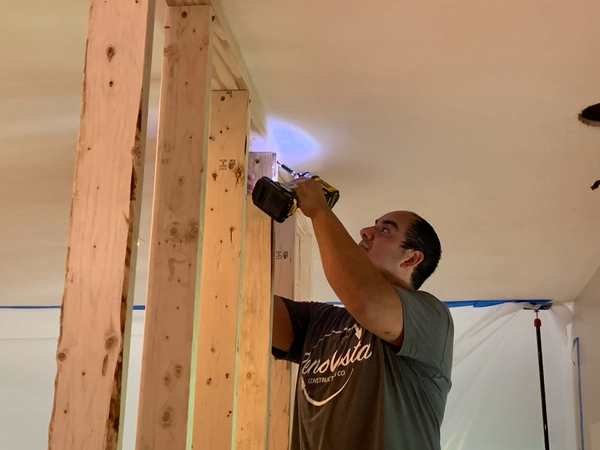This Is A Specific Question That, Surprisingly, People In Worcester County And MetroWest, Massachusetts Ask Us Quite A Lot.

This is a very important question that we feel needs a post to answer. The answer will determine whether or not we can work together.
In this post, you’ll find out if we can work together based on if your last contractor did or didn’t pull permits. You’ll also find out why and the importance of pulling permits.
Did They Or Didn’t They?
“I have no idea if they pulled permits or not,” sighs John.
Melissa puffs her cheeks out in frustration. “That’s great. Wish they’d been better about communicating with us because now we might be in a tight spot. I mean, do contractors pull permits, handle paperwork, or schedule inspections?”
“I don’t know the answer to the second question. Wait, why are we in a tight spot?” asks John. Melissa sighs. “If they didn’t pull permits then some contractors might not work with us. It could also cost way more than it should to do our project.”
“How do you suddenly know all this?” asks John. Melissa unlocks her phone and slides it across the kitchen table. “I was talking to a local contractor and he sent me a few of his blog posts. They answer a lot of common questions, this being one of them.”
Here’s what John sees:
Why Permits Are Important

Getting permits from the city can be a real pain in the…neck. But, they’re important. They ensure work is done to meet safety standards.
Contractors who work without permits don’t usually do their work up to code, which makes it sketchy. Well, they do it up to their code instead of the majority agreed-upon code.
What Projects Don’t Require Permits
Projects that don’t require structural additions or changes usually don’t need a permit. This can include painting, crown molding, and other similar projects.
Why RenoVista Rarely (If Ever) Works On Non-Permit Projects

Firstly, it’s important to know that doing projects without a permit is illegal. There’s no way to make sure they meet safety standards.
It’s also super tricky and expensive. We first have to bring everything up to code, which is a remodel in and of itself. Then we can get to doing what you wanted to be done in the first place.
Towns around Massachusetts are strictly enforcing permits. They make it beneficial to get one. They’ll grandfather most codes (even ones from 20 years ago) if they’re done right the first time. It depends on the extent of your project.
In short, it can take a huge amount of time, labor, and materials to fix whatever was done. Then we go to the new project, which is a whole other beast.
If you aren’t sure whether your project needs a permit or not, we’d be happy to let you know! Just let us know via our contact form.
You May Also Like To Know
“Well now we NEED to know if they pulled permits or not,” says Melissa in exasperation. John starts looking up their phone number on Google. “How about you take care of that and I’ll read through the other blog posts so I can catch up to you?” Melissa nods and they get to it.
